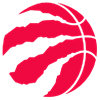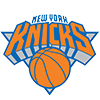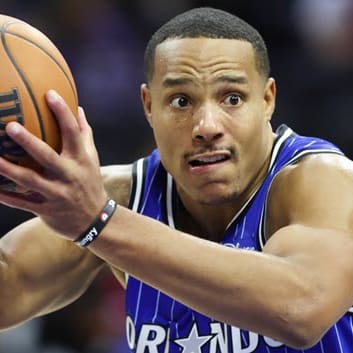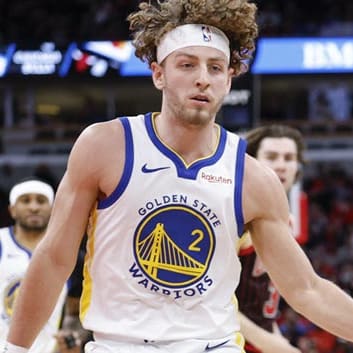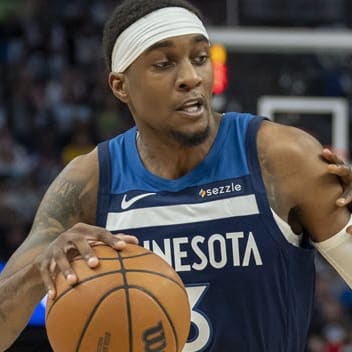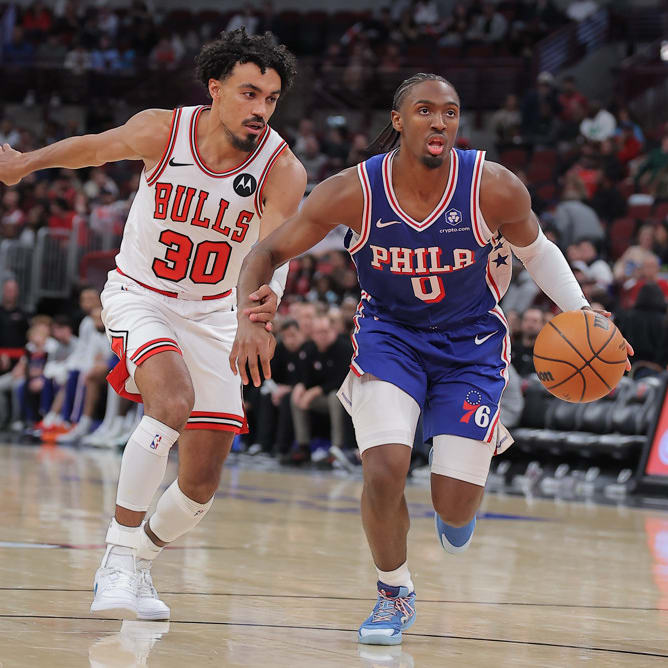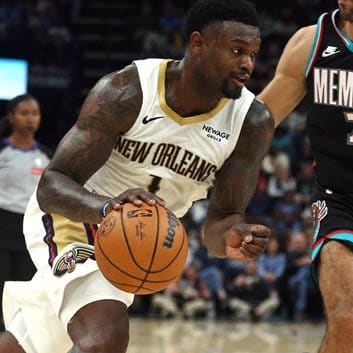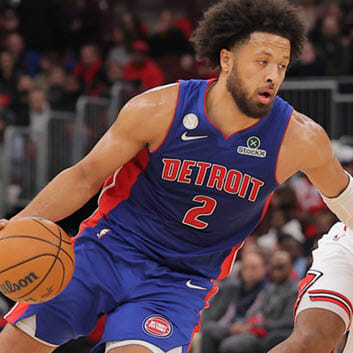Picks 21-30 continued with more international draft-and-stash candidates, plus Sacramento curiously stockpiled centers. Let's review each pick:
Pick #21) DeAndre Bembry, G, Atlanta Hawks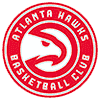
Height/Weight: 6-foot-6, 210 pounds
From: St. Joseph's
Age: 21
While the Atlanta Hawks went with a more modern wing that fit the "3-and-D" mold in Taurean Prince at 12th overall, the team decided to go with a more traditional wing for their second first-round choice, selecting Bembry with the 21st overall pick in the 2016 NBA Draft.
Bembry filled up the stat sheet at Saint Joseph's last season, earning Atlantic 10 Player of the Year honors while averaging 17.4 points, 7.8 rebounds, 4.5 assists and 1.4 steals across 37.3 minutes per game. However, he only shot 26.6 percent from the three-point range while hoisting 3.6 attempts per contest, and that deficiency from beyond the arc created an artificial ceiling for how high he could go in the draft. The Hawks felt as though they found the equilibrium point when he was available in the bottom third of the first round.
For all the questions that remain about his ability to fit into a fast-paced, shooting-oriented attack, Bembry brings enough to the table in terms of his athleticism, transition skills and sound decision-making that he should fit in well with just about any lineup. He certainly displayed his adaptability during the five-on-five scrimmage portion of the NBA Combine, when he was frequently the most impressive player on the floor while matching up with his fellow draft prospects.
His defense still lags a little behind his contributions on offense, but Bembry shouldn't be viewed as a liability in that regard. He boasts natural basketball instincts and possesses a 6-foot-9 wingspan, which often helps him compensate for a lack of shut-down abilities. And for a player who checks in at 6-foot-6, Bembry grades out as a good rebounder.
As far as what to expect from Bembry as a rookie, it seems likely that most of his highlights will come in practice. In the event the Hawks are able to retain unrestricted free agent Kent Bazemore, the team would have five wings (Bazemore, Kyle Korver, Thabo Sefolosha, Prince and Tim Hardaway) who would likely open training camp ahead of Bembry on the depth chart. Since the 21-year-old doesn't have a specialized skill or niche, he could find it difficult to force his way into coach Mike Budenholzer's rotation. The Hawks might decide to frequently ship Bembry off to the D-League in order for him to see the playing time necessary to further develop his jump shot and his defense.
22) Malachi Richardson, G, Sacramento Kings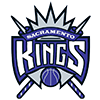
Height/Weight: 6-foot-6, 200 pounds
From: Syracuse
Age: 20
The Sacramento Kings took a gamble on youth and upside with the second of their three first-round selections in the 2016 NBA Draft, picking Richardson, a 20-year-old wing from Syracuse, with the 22nd overall selection. The Kings had acquired the pick hours before the draft from the Charlotte Hornets, who took back Marco Belinelli in return.
Though the fact that Richardson landed in the first round wasn't surprising, he endured plenty of criticism from draft analysts along the way. Those who follow college hoops closely were left scratching their heads when Richardson wasn't required to participate in the five-on-five portion of the NBA Combine, which essentially confirmed that he might have secured a first-round promise from a team. After all, this is a player who shot just 37 percent from the field and averaged just 4.3 rebounds and 2.1 assists in 34.4 minutes per game as a freshman at Syracuse, numbers that don't exactly suggest that first-round potential exists here.
Richardson clearly has some aspects of his game that need work, but by digging a little deeper, it's obvious why the Kings -- and other teams -- were willing to overlook his horrid numbers. He measured in at 6-foot-6 with a seven-foot wingspan, which qualifies as next-level length for a player who can play either shooting guard and small forward, and possibly even some small-ball power forward. In addition, Richardson shot 35.3 percent from behind the arc, so his floor would seem to be that of a "3-and-D" wing.
He was also an and-one machine at Syracuse, finishing with contact in traffic with regularity, and given his size, that attribute should translate to the NBA. Richardson is still learning the game, but wings who can shoot and defend are more coveted than ever, and he certainly projects to be the type of player who can switch on screens and stretch the floor.
He may require some D-League time, or he may be stuck riding the bench for the bulk of his rookie season with the Kings. Nevertheless, if he's putting the work in behind the scenes, Richardson could emerge in a year or two as a valuable rotation player for the Kings. Another former first-round pick, Ben McLemore, has seen his development stall out and no longer looks to be the Kings' long-term solution at shooting guard, which might help accelerate Richardson's rise to a prominent role.
23) Ante Zizic, C, Boston Celtics
Height/Weight: 7-foot-0, 249 pounds
From: Croatia
Age: 19
Zizic was the second of the Boston Celtics' two international first-round picks, landing at No. 23 overall in the 2016 NBA Draft. As the Celtics plan to do with 16th overall selection Guerschon Yabusele, Zizic is expected to be stashed overseas for at least another year. With the Celtics in the market for immediate frontcourt help, the team is more likely to pursue adding a veteran big man through a trade or free agency that counting on the 19-year-old Zizic to immediately step in and contribute in 2016-17.
Zizic is part of a basketball renaissance in Croatia, which has seen an explosion in talent the last couple of years. While he takes a backseat in recognition to fourth overall pick and fellow countryman Dragan Bender, there's plenty of get excited about with the newly-minted Celtic. Standing at a sturdy seven feet and possessing a 7-foot-3 wingspan, Zizic has already made waves in the Adriatic League. Suiting up this past season for Cibona Zagreb, Zizic produced averages of 13.4 points, 8.0 rebounds and 1.4 blocks in 25.7 minutes per game while shooting 63.9 percent from the field and 70 percent from the charity stripe. To put that production in perspective, Nikola Jokic, who emerged as one of the top rookies in the league as a member of the Nuggets last season, averaged 11.4 points, 6.4 rebounds and 1.0 blocks in 25.0 minutes per game as a 19-year-old in the Adriatic League. Jokic has a three-point shooting element to his game that Zizic doesn't, but needless to say, Zizic has the look of someone who could carve out a career in the NBA.
Many talent evaluators believe that Zizic has already tapped into most of his potential, and since a lot of his offensive potential has stemmed from his high effort and relentless motor, there's some belief that he'll have a much more difficult time scoring when he faces off against the better athletes of the NBA. That's certainly a valid concern, but Zizic should at least offer a solid floor in the form of the toughness and hustle he brings on both ends of the court. His inability to stretch the floor or make a dramatic impact as a rim protector suggests a backup role might ultimately be in the offing for Zizic, but he can probably be relied upon to provide a good change of pace when a starter requires rest.
24) Timothe Luwawu, G/F, Philadelphia 76ers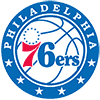
Height/Weight: 6-foot-7, 205 pounds
From: France
Age: 21
After grabbing a potential franchise cornerstone in Australian-born LSU forward Ben Simmons with the first pick, the Philadelphia 76ers went back to the international well for their second selection of the 2016 NBA Draft, choosing Luwawu at No. 24 overall. The French swingman expressed a desire to play for the 76ers in 2016-17 immediately after hearing his name called, but the organization remains non-committal on Luwawu's status for the upcoming season.
Luwawu certainly has the look of an NBA-ready player, standing at 6-foot-7 with a wingspan of 6-foot-11, but the 21-year-old's accomplishments to this point in his pro career might paint a different picture. He averaged 14.6 points, 4.8 rebounds and 1.7 steals in the Adriatic League a season ago, but remains a streaky offensive player, as evidenced by his 39.8 field goal percentage and the fact that he averaged more turnovers (2.9) than assists (2.8). The 76ers already have enough players on the roster who shoot inefficiently and are careless with the ball, so Luwawu's potential arrival would only seem to exacerbate those issues. Luwawu did show significant improvement in his three-point shooting last season, hitting 37.2 percent of his tries from distance, but on the flip side, that illustrates just how poor he was at converting from two-point range.
He's still rounding into form as a defender, but thanks to his long arms and athletic build, Luwawu has greater potential on that side of the floor. A role as a defensive stopper could beacon for Luwawu in his initial taste of the NBA, but the continued growth he shows with his offense along the way will probably end up determining if he's a starting-caliber player or just a face in the rotation. He's also struggled with putting forth a consistent effort defensively, and that's something he'll need to overcome in order to become an elite stopper.
Once he formally joins the Sixers, Luwawu shouldn't face much difficulty in ascending the depth chart if his skills warrant it. With Simmons likely to man the forward spot, Robert Covington and Hollis Thompson are the top current options at the small forward spot, and neither possesses the pedigree and athleticism that Luwawu does. Given his age, Luwawu certainly has time to rectify the concerns the 76ers still might have with him on both ends of the court, but there's no denying he's an intriguing prospect.
25) Brice Johnson, F, Los Angeles Clippers
Height/Weight: 6-foot-11, 209 pounds
From: North Carolina
Age: 21
With several younger and seemingly higher-upside big men available at the 25th overall pick of the 2016 NBA Draft, the Los Angeles Clippers instead opted for a safety and stability with their selection, choosing time-tested North Carolina power forward Brice Johnson.
The 6-foot-11 senior showed steady improvement throughout his four seasons at Chapel Hill, culminating in a 2015-16 campaign in which he averaged 17.0 points and 10.5 rebounds while shooting 61.4 percent from the field and 78.3 from the charity stripe. The latter figure has to be a particularly welcome sight for the Clippers, who have had to witness years of poor free-throw shooting from their long-time frontcourt starters Blake Griffin and DeAndre Jordan.
Johnson is no threat to encroach on the starting role of either player, but he could quickly assert himself as a rotation player on a Clippers team that frequently had small forwards masquerading as stretch fours when Griffin missed most of last season due to a quad injury. While Johnson's height is ideal for a power forward, he doesn't offer much length, but that didn't preclude him from blocking shots in college. He swatted 1.5 shots away per game, relying on his excellent hops to stifle the opposition near the rim. Johnson projects as more of a glass crasher than a rim protector in the pro ranks, but with Jordan anchoring the back end, any rejections the rookie provides would be gravy.
Despite his solid free-throw shooting, Johnson's range doesn't extend to the three-point line, as he typically settles for mid-range jumpers. With today's NBA prioritizing more outside shooting from big men, Johnson could experiment in summer league with introducing a three-point shot into his repertoire. Adding more shooting range to his assortment of skills would go a long way toward Johnson raising his overall evaluation as a prospect.
While become a threat from downtown could be a long-term aspiration for Johnson, the rookie's main duties to start his career will consist of spelling Griffin or Jordan when necessary and making sure the Clippers don't lose a beat defensively. Look for the Clippers to bring in another backup big man this offseason as a safeguard in the event Johnson isn't ready to assume a rotation spot when the season begins, but the 21-year-old seems more NBA-ready than most of the prospects who were selected Thursday.
26) Furkan Korkmaz, G, Philadelphia 76ers
Height/Weight: 6-foot-7, 185 pounds
From: Turkey
Age: 18
With their third pick of the first round in the 2016 NBA Draft, the Philadelphia 76ers decided to go with a potential draft-and-stash player in the 18-year-old Korkmaz, a shooting guard from Turkey. The nation has been a wellspring of international NBA talent for over a decade, but Korkmaz is one of the few guards from Turkey to emerge as a first-round talent.
After an up-and-down 2015-16 season with Anadolu Efes of the Turkish Basketball League, with whom he averaged 4.3 points over 11.5 minutes per game, Korkmaz was initially expected to withdraw from the draft after he received no guarantees of being selected in the lottery, but surprisingly chose to reverse that stance and keep his name in the draft. While he likely would have seen his stock rise had he reentered the draft in 2017, the 6-foot-7 shooting guard still has a promising future in the NBA, almost entirely due to his proficiency from downtown.
At this point in his development, Korkmaz remains more of a catch-and-shoot threat than a player who can create his own shot, so his skills aren't likely to be optimized unless he's playing alongside a capable point guard. When things are going well, Korkmaz has the ability to take over games with his hot shooting, but he's also a willing passer who is able to keep the ball moving when he falls into cold spells.
Korkmaz will need to add more strength and develop his handle in order to remain a long-term fixture in the league, but due to his lack of explosive athletic ability and defensive shortcomings, it doesn't appear the 6-foot-7 wing has much of a ceiling beyond that of an average NBA starter. Even so, his advanced shooting skills relative to most players his age at least provides him with a good foundation to work with, and that skill might ultimately be enough for him to carve out an Anthony Morrow-type career as sniper off the bench.
Korkmaz has stated in the past that he wants to play in the NBA right away, and his decision to stay in the draft despite no assurances would seem to support that, but he would still probably benefit from spending another season overseas for a team willing to hand him more ample minutes. If Korkmaz ends up sticking with the 76ers after training camp concludes, his 2016-17 campaign will likely consist of several trips to the D-League, as he's unlikely to claim a rotation spot as a rookie.
27) Pascal Siakam, F, Toronto Raptors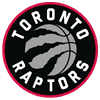
Height/Weight: 6-foot-10, 227 pounds
From: New Mexico State
Age: 22
The Raptors ventured out to the Rocky Mountain region for both of their first-round picks in the 2016 NBA Draft. After selecting Utah center Jakob Poeltl with the ninth overall pick, Siakam went 27th overall to Toronto, capping a surprising ascent up the draft board for the 6-foot-10 power forward.
Following his sophomore season at New Mexico State, Siakam had waited up until shortly before the withdrawal deadline to keep his name in the draft, and the decision paid off, as he was able to push his way into the first round. Siakam turned in impressive averages of 20.4 points (on 53.6% shooting from the field), 11.8 rebounds and 2.2 blocks per game last season, though as a small-school product, the big man's numbers carry the stigma of mostly coming against low-level competition.
The power forward's stock didn't really begin to take off until he shined during the measurements portion of the NBA Combine. Siakam checked in with a huge 7-foot-3.25 wingspan, and that coupled with the non-stop hustle he displayed in workouts and games would seemingly make him a good candidate to serve as a rotational big man at the next level. In order for that to happen, though, Siakam will probably need to add some weight. At 227 pounds, he lacks the heft to regularly get position and bang with NBA big men. While Siakam's physical advantages worked for him against shorter players in college, he could have trouble exerting his will in the NBA, particularly on the offensive end. Additionally, at 22 years old, he's an older prospect compared to most underclassmen who enter the draft, seemingly leaving less room for growth both physically and as a player.
It seems clear that both of the Raptors' picks were in response to the likely prospect of losing Bismack Biyombo in free agency this summer. While Poeltl is the top candidate to replace Biyombo as the backup center to Jonas Valanciunas, Siakam might actually be the better analog to Biyombo. Both Biyombo and Siakam are high-energy types with long arms and limited offensive capabilities, though Biyombo's rebounding skills appear to be well ahead of where Siakam's currently stand. It may take a couple of years, but the Raptors are banking on Siakam making up that difference in time.
28) Skal Labissiere, F/C, Sacramento Kings
Height/Weight: 7-foot-0, 216 pounds
From: Kentucky
Age: 20
Labissiere wasn't immune to the trend of lesser-accomplished college big men falling out of the lottery, but the Kings ended his misery by taking him with the No. 28 overall pick in the 2016 NBA Draft. In heading to Sacramento, Labissiere will find himself in friendly quarters, as he'll be able to learn under two former Kentucky frontcourt standouts in DeMarcus Cousins and Willie Cauley-Stein. There likely won't be many opportunities right off the bat for Labissiere to see many minutes behind those two players, but in time, he could give the Kings the sort of skill set that perfectly complements that duo.
Few players in the draft have been picked apart to the extent that Labissiere has since the start of his freshman season. The reason for this is obvious: he was ranked ahead of Ben Simmons as the top high school prospect in last year's class by several outlets, and to compare the two now would be quite laughable, considering their trajectories in the draft.
Most troubling about Labissiere's poor campaign was that his role was minimized down the stretch, a time of the season when freshman often show their most improvement. After the start of the New Year, Labissiere saw 20 or more minutes in just three of 24 games, and failed to eclipse 10 minutes in eight of those games. Indeed, he teetered between being a role player and an afterthought for the final two thirds of his lone college season, demonstrating quite the fall from grace for a prospect of his pedigree. Nonetheless, at this stage in the draft, his physical gifts and uncommon skill for a seven footer represented enough upside for him to be worth the gamble.
Part of the reason he fell out of favor at Kentucky was that he didn't fit into what coach John Calipari was looking for from his center. Labissiere belongs on the perimeter as a stretch big, not on the low block as a post presence. He attempted just two three-pointers as a freshman, but that will be a big part of his game if he's to have success in the NBA.
In addition to his ability to stretch the floor, the other top tool Labissiere brings to the table is his ability to protect the rim. He averaged 1.6 blocks in just 15.8 minutes per game, and on a per-minute basis, that put him at the same pace as Karl-Anthony Towns, when he was a freshman at Kentucky.
29) Dejounte Murray, G, San Antonio Spurs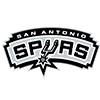
Height/Weight: 6-foot-5, 170 pounds
From: Washington
Age: 19
The San Antonio Spurs stopped Murray's unexpected fall from a potential lottery pick to out of the first round, claiming the point guard from Washington with the 29th overall selection in the 2016 NBA Draft. On a team as deep as the Spurs, Murray is going to be a pet project for coach Gregg Popovich and GM R.C. Buford, but after a couple years of tutelage, he may be ready to take the reins of the offense from the aging Tony Parker.
While Murray wasn't a household name during his one season in college, he arguably has as much long-term upside as any player in this draft not named Ben Simmons or Brandon Ingram. His size (6-foot-5), length (6-foot-10 wingspan) and speed are elite physical tools that separate him from others at point guard. Since Murray is clearly a projection pick for the Spurs, it wouldn't be surprising if he spent a good chunk of his rookie season playing in the D-League. The range of potential outcomes for Murray is as wide as that of any prospect, as he could be an All-Star and he could also wash out of the league in a few seasons. Fortunately for him, the historical stability of the Spurs' organization gives him a better chance at success than if he were to land almost anywhere else.
Murray showed more than just glimpses of his vast potential while at Washington. He had more rebounds as a freshman than teammate and fellow first-rounder Marquese Chriss who has five inches on Murray. Point guards who average six rebounds and 1.8 steals per game in their first year of college are a rare breed, and it speaks to Murray's ability to do things that can't be taught.
He has a long way to go, however, in areas of his game that can be improved through hard work. Murray shot just 28.8 percent on 3.5 attempts per game from three-point range, and he averaged just 4.5 assists in 33.5 minutes per game despite demonstrating excellent vision at times and being a willing passer. He also averaged 3.2 turnovers per game, as his handle was occasionally loose, and he was allowed to freelance in transition and in the half court more than most freshman point men.
Murray also averaged 16.1 points while shooting 41.6 percent from the field and 66.3 percent from the line. He has an excellent floater and can often beat his man off the dribble via crossovers and hesitation moves, but he'll need to improve his overall shooting efficiency to warrant being a high-usage option down the road. If he improves his jumper, he has the ability to create space whenever he needs to, and he also has the size to get his shot off over most point guards in tight quarters.
30) Damian Jones, C, Golden State Warriors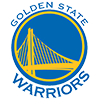
Height/Weight: 6-foot-11, 248 pounds
From: Vanderbilt
Age: 20
Making the final selection in the first round for the second straight season, the Warriors opted to take a chance on a project big man, drafting Damian Jones with the 30th overall pick in the 2016 NBA Draft. Much like last season's first-round pick, Kevon Looney, Jones isn't expected to claim a rotation spot as a rookie, and also carries some injury risk. Earlier in June, Jones underwent surgery to repair a torn pectoral muscle. He'll be forced to miss summer league while recovering, and could even be at risk of missing training camp, which certainly won't help his development process.
Given Jones' injury concerns and the likelihood that he'll be behind the rest of his teammates when camp opens, the Warriors clearly aren't viewing Jones as anything more than a long-term developmental option at center. It's a worthy investment with Festus Ezeli becoming a restricted free agent this season and uncertain to return to the Warriors following a lackluster NBA Finals. Even if Ezeli heads elsewhere, it's unlikely Jones would be first in line to back up Andrew Bogut, as the 20-year-old's game still needs plenty of refinement.
During his junior season at Vanderbilt, Jones posted averages of 13.9 points, 6.9 rebounds, 1.6 blocks and 1.2 assists in 26.2 minutes per game, while shooting 59 percent from the field. Those numbers didn't represent standout production for a first-round prospect, but Jones' appeal has always been more about his physical attributes. The center sits at seven feet and 244 pounds and has an outstanding 7-foot-3.75 wingspan, giving the Warriors something to dream on. He also packs plenty of athleticism into his frame, and is particularly adept as a dunker and finisher in the lower block. Jones is unlikely to be the kind of player capable of creating his own shot, but with Stephen Curry and plenty of other talents surrounding him, Jones won't ever be tasked with shouldering a major offensive load.
Along with overcoming the pectoral injury, Jones' first year in the league will mainly be about improving his fundamentals and intangibles. During his college days, he was passive at times on the court, and could be susceptible to lazy defense. With a strong foundation in place with coach Steve Kerr and his well-regarded staff, Jones landed in about as good of a spot as possible to reach his vast potential.








